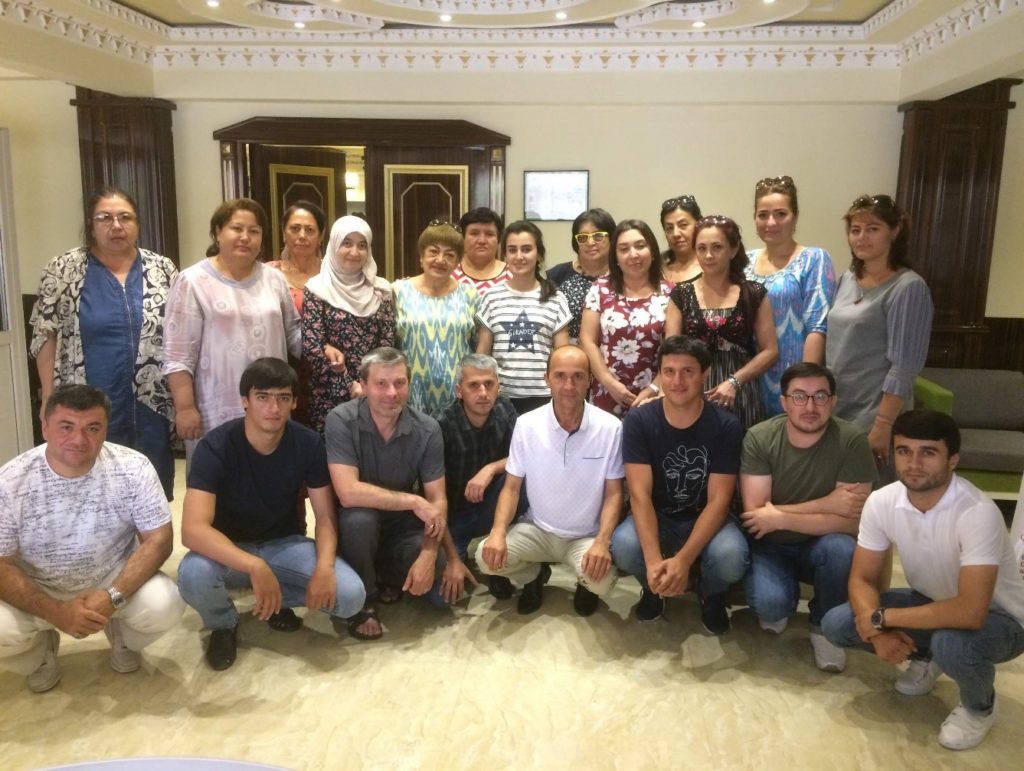The project “Partnership for Equal Access” (Partnership) in the Republic of Tajikistan is soon to close, and although it lasted only from March to October 2018, it managed to achieve tangible results and lay the foundation for further changes.
The HIV epidemic in the country is in a concentrated phase. The estimated number of HIV-positive people in Tajikistan is 15,000 people (data from 2017), which is below 0.2%, however, the growth rate is more than 100 people per year. The proportion of women among new HIV cases is increasing, and the sexual transmission of HIV is also progressing. There is a high level of stigma and discrimination against PLWH and key populations.

Considering the intensive migration exchange with the Russian Federation, where HIV prevalence is several times higher, as well as the low level of state funding for the HIV program, the country needs to take urgent actions to increase the political will to develop sustainable mechanisms to combat HIV infection. One of the important indicators of the country’s readiness to transition to sustainable state financing is the developed and adopted package of documents to envisage the funding of NGOs working in the field of HIV.
In the #Partnership Project, two experienced non-governmental organizations created on the basis of PLWH communities and key populations: “Guli Surkh” and “SPIN Plus” united in a consortium. Moreover, the Osmon initiative group joined the project.
What have you managed to do in eight months?
- As a result of the meetings and discussions of the interdepartmental working group, the document “Specification and standards of social services; social adaptation of people living with HIV and their environment” was drafted. The document has been submitted to the Ministry of Health and Social Protection of the Republic of Tajikistan for further review.
- A protocol was formulated on proposals for revitalizing the work of local CCMs, which will be presented at a meeting of the national coordinating committee on combating AIDS, tuberculosis and malaria under the Government of the Republic of Tajikistan
- 36 representatives of communities of Tajikistan are trained in budget advocacy skills.
According to the results of the training, the participants shared feedback:
Sevar Kamilova, Director of the NGO “Guli Surkh”, Dushanbe
This is a very useful training for the non-governmental sector of Tajikistan. Each participant, each organization that was here, had an understanding of how to achieve their goals. I think that everyone learned something new for themselves. Everyone had their own aspiration to do something, but there was no understanding where to get the funds. It is important to understand that it is not enough to knock at this door once and leave, it is important to knock a second and a third time, and then we will succeed.
Zevara Kurbanova, Project Coordinator, NGO “Guli Surkh”, Dushanbe
It is clear to me where to start and how to conduct an advocacy initiative. I hope that absolutely everyone can advocate for the interests of their group.
The project participants formulated the priorities for further actions required for the sustainable financing of HIV programs in Tajikistan:
- Forming a strategy for integrating the activities of organizations within the framework of the implementation of the National Program on Combating the Spread of HIV/AIDS for 2017-2020 and the plan for the transition of the Republic of Tajikistan to national financing from 2020 to 2025,
- Advocacy to allocate the city budget for HIV programs.
- Piloting work on the provision of social services for PLWH in the framework of the state social contract.
